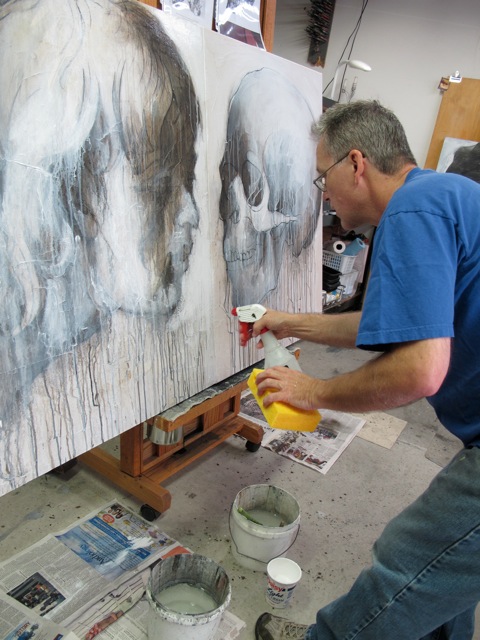BE YOUR OWN BEST CRITIC (Part One)
One more thing about FAILURE:
Failure is not failure but a moment of learning. The creative process is a journey of continual learning.
OK. Enough of that. On to being your own best critic:
I am just going to come right out and say this. I believe that artists rely too much on what others think and say about their work. For some reason artists seek approval from others. I am pretty sure this all boils down to having a lack of confidence in our artistic abilities and in questioning the quality of what we have created. All artists have these feelings, especially those who are new to making art. Unfortunately when we seek approval we often end up with disapproval.
Remember: ACTION QUIETS FEAR.
Keep painting and then paint some more. Do not let what others say about your creations derail you, or worse yet, completely shut you down.
Stop asking for validation for awhile. See how it feels. Don't ask people what they think about your art. This includes friends, family, other artists and critics. Just keep painting.
I do, however, think teachers are a different story. I am a teacher and have been for 25 years. I was also a student in art school for 7 years. The teacher/student dynamic is different. Teachers teach. That's what they do. They also provide criticism and validation. Students learn. That's what they do. In this relationship, criticism and validation are necessary for growth. Students pay for and expect the teacher to tell them what they are doing right and what they are doing wrong, among other things. This is all part of the process and rhythm of the classroom. And it is necessary and good.
However, outside of the classroom is a different story.
First of all, you must always create your art for yourself. Then, you must learn to critique and validate yourself. It can get too messy when others intervene. And we invite it! People are going to give you their opinions whether you want them to or not. And when they do, my suggestion is to take it for what it is. Take it with a grain of salt and get back to work. Hear what they have to say, accept or reject it, and continue painting. Stay focused. Stay on your path. Do not let what other people say about your work, your style, or your talent force you to deviate from from what or how you are painting.
People who give you their opinion about your work, whether asked to or not, think they are helping. But most of the time they are not. They mean well. They are usually coming from a good place. They mean you no harm. But it still doesn't help. So, don't get angry at them. Whatever they have to say about your work is not the thing that hurts you. It is what you think about what they say that hurts you. It's what you make it mean about you that hurts you.
If you receive negative comments, brush them off and get back to work. If you receive positive comments, don't let the euphoria go to your head. Stay balanced, stay focused and stay level-headed.
Remember, you are not your artwork. Youare not what you create.
Do not take things personally.
In my experience, artists, from beginner to advanced to professional, know when their work is good and when their work is not good or great or excellent. We know!
You know. Deep down, you know.
As artists, we should learn to become self-motivated, self-disciplined and self-directed. These qualities will help us be our own best critic.
Best,
David
[FREE FOR ARTISTS]
HOW TO CRITIQUE YOUR OWN WORK
Creating your work is different than stepping back and assessing your work. Learn how to apply a discerning eye to your own work once you've put the brushes down.


